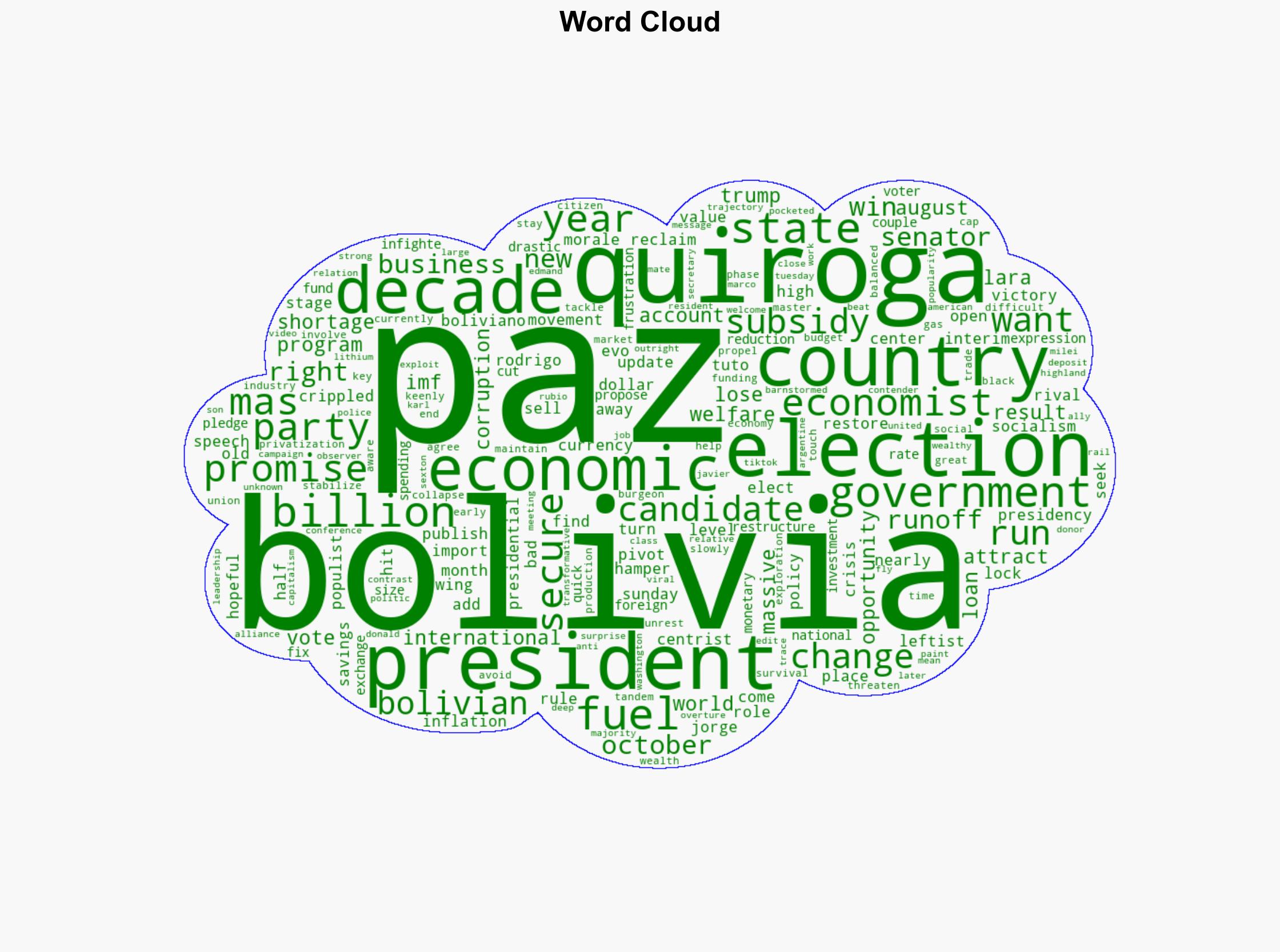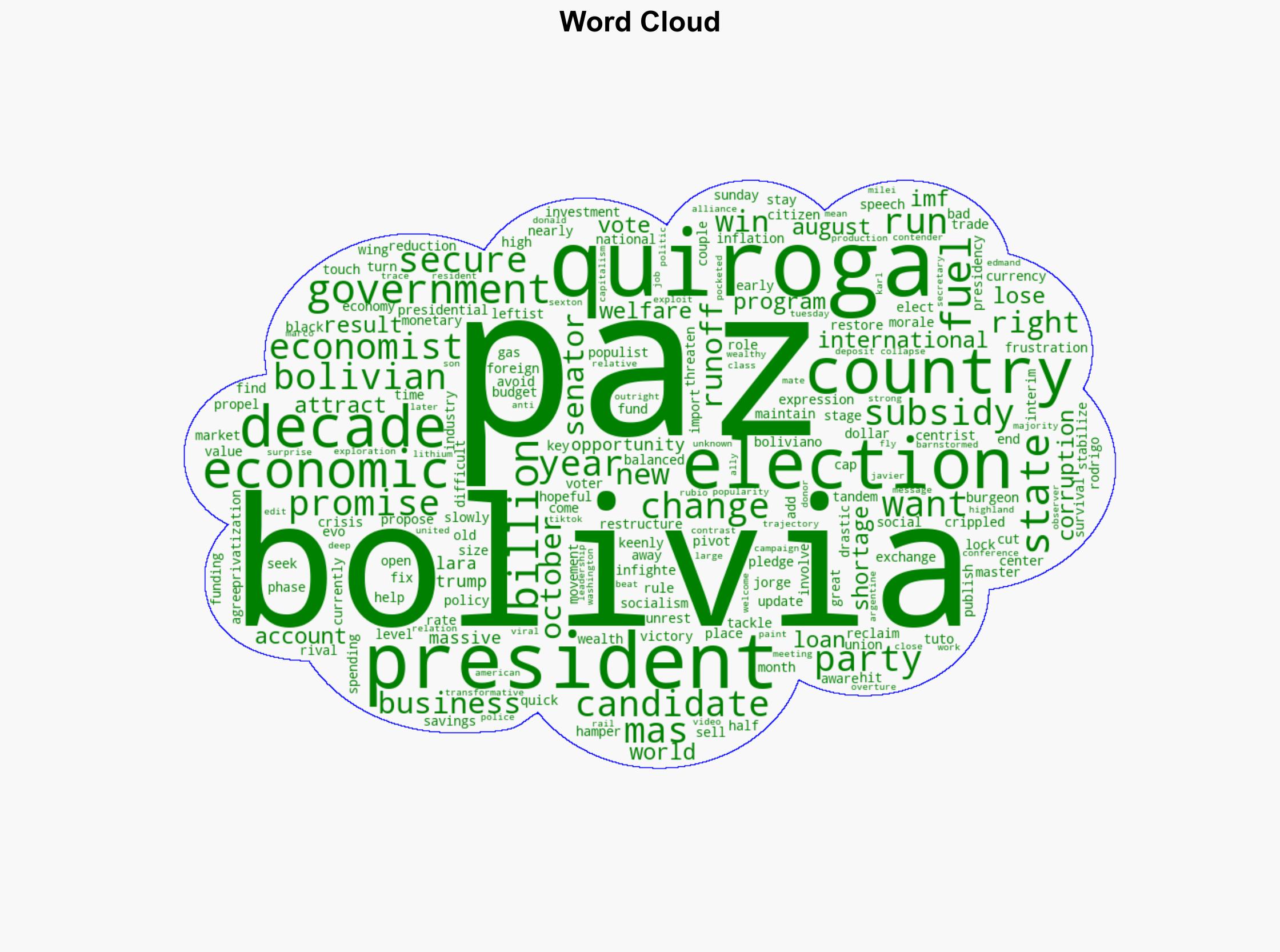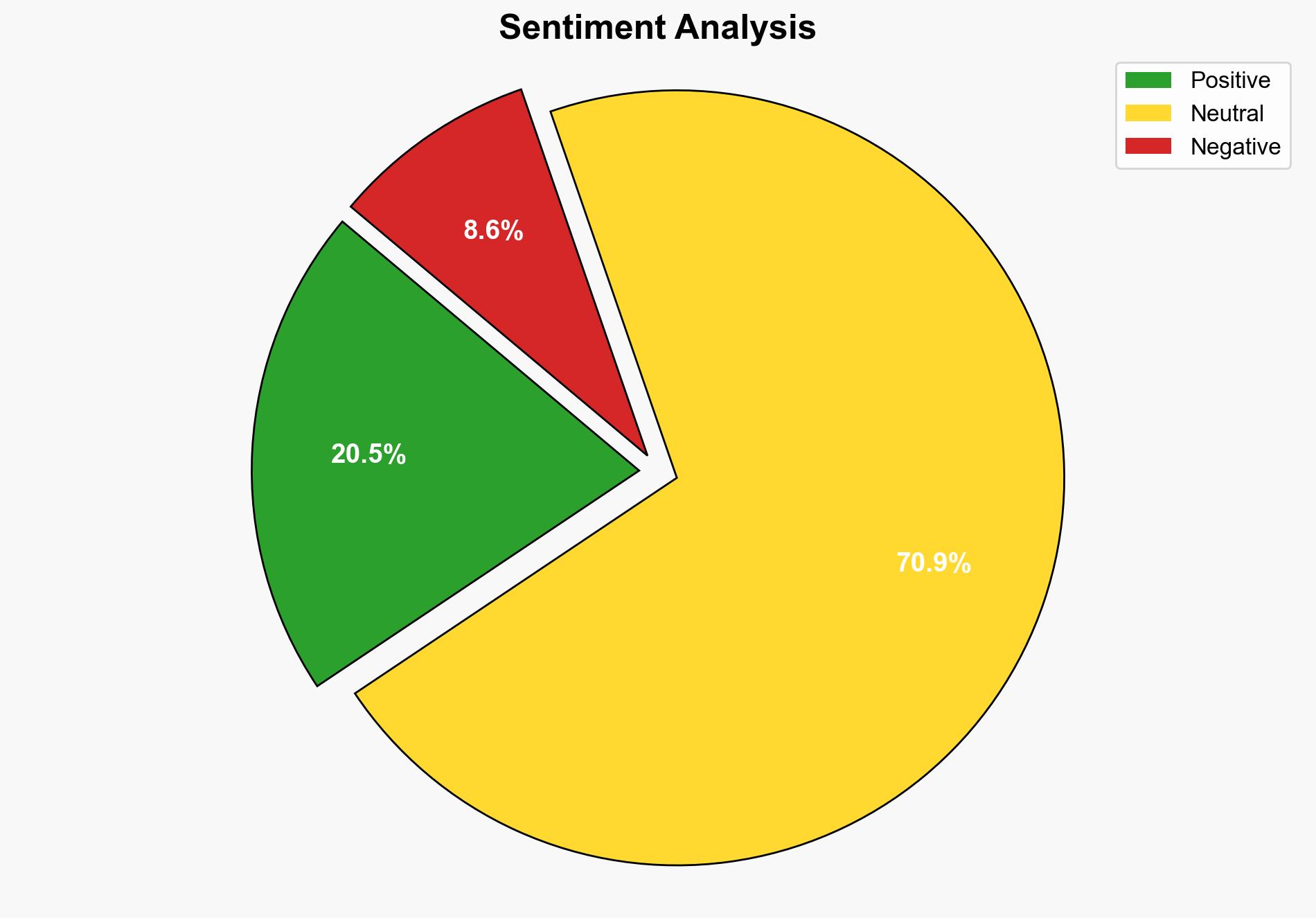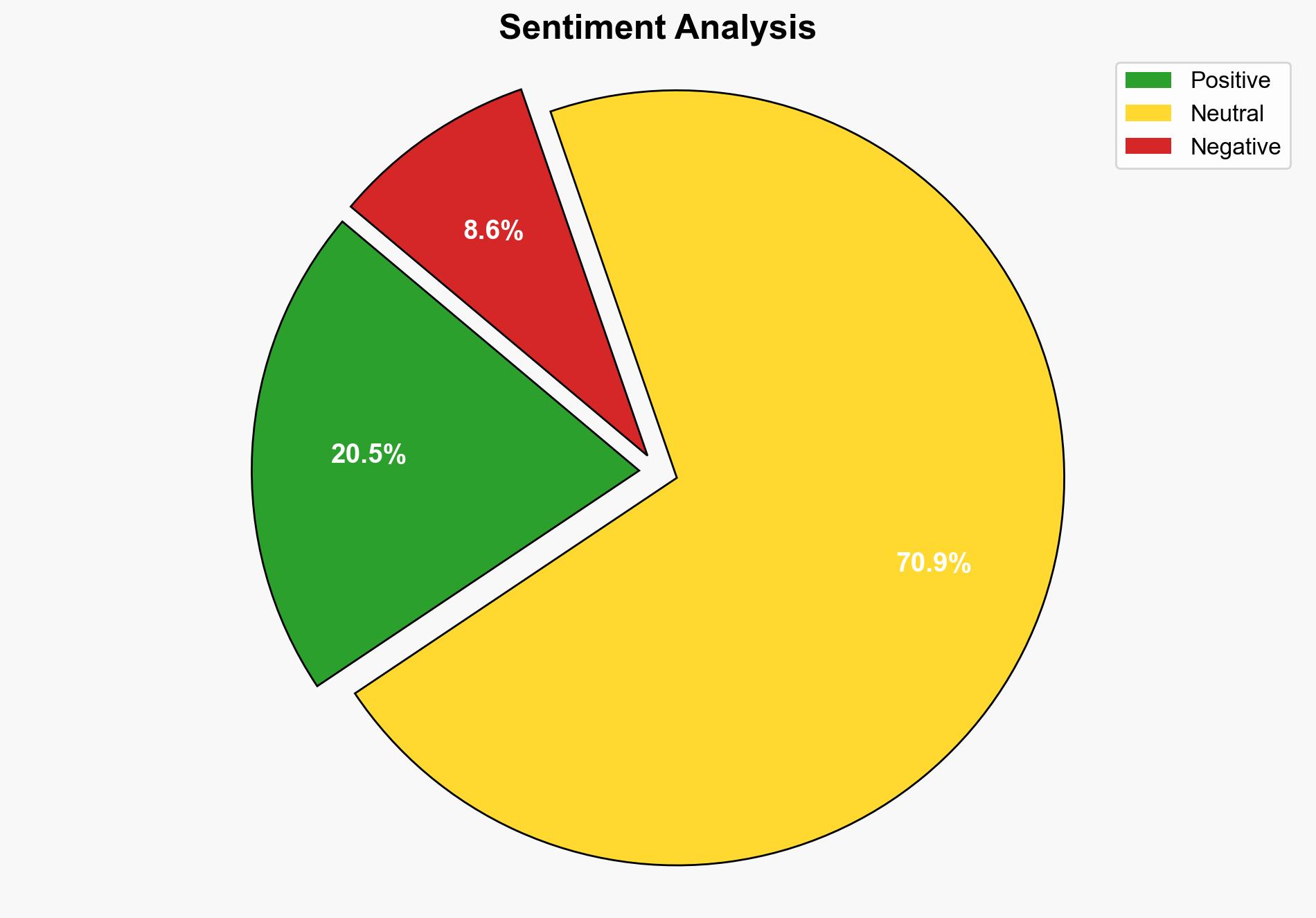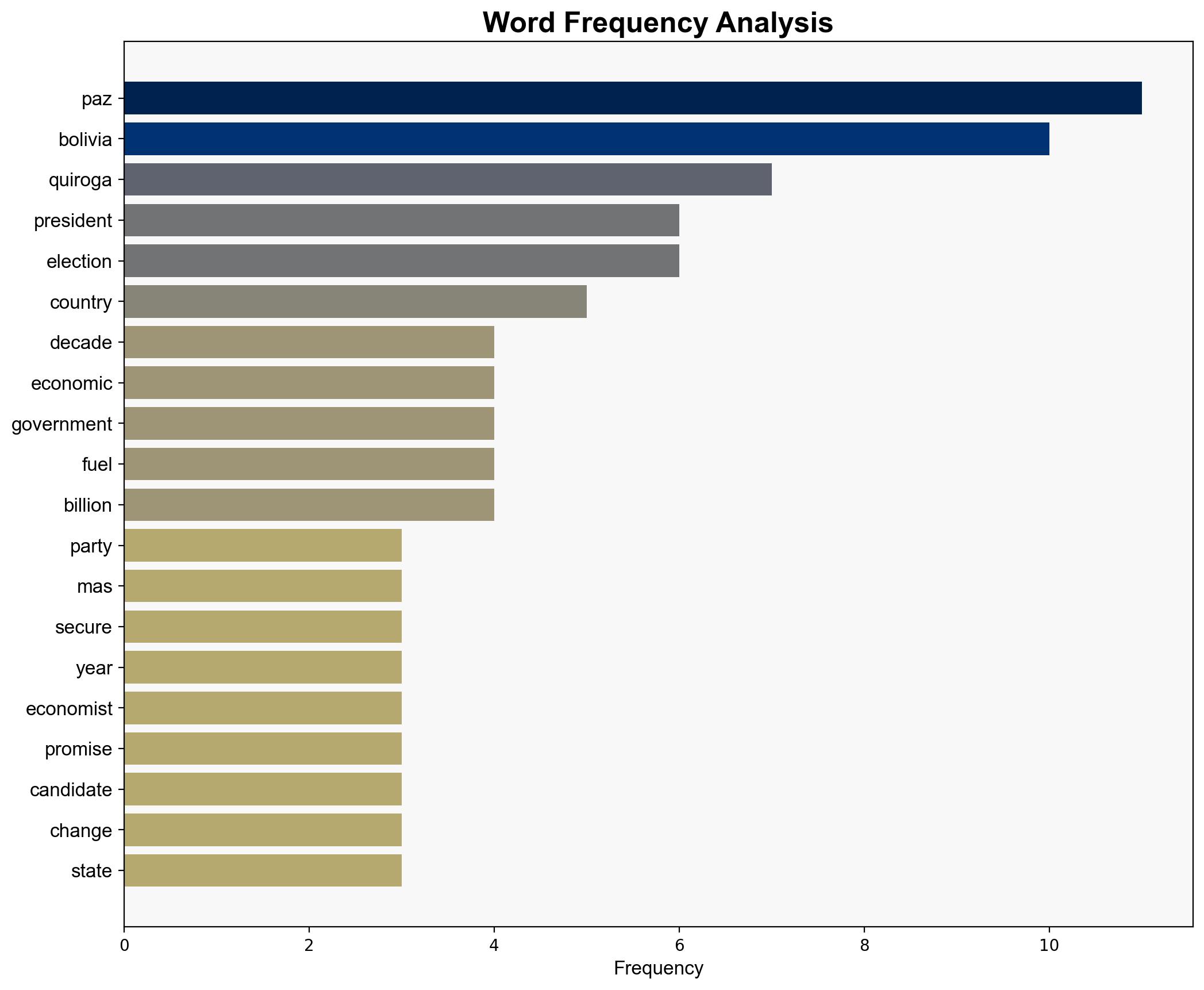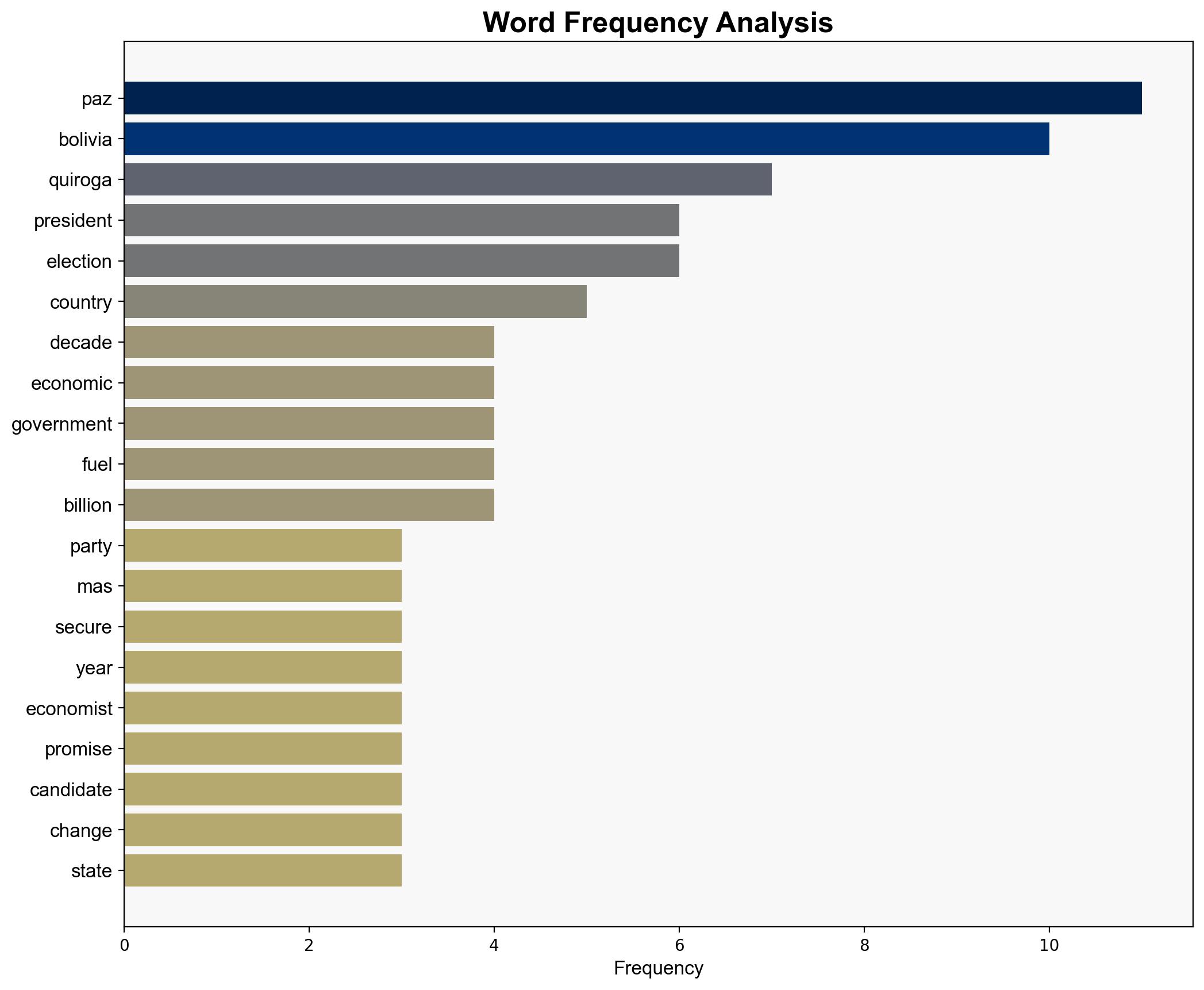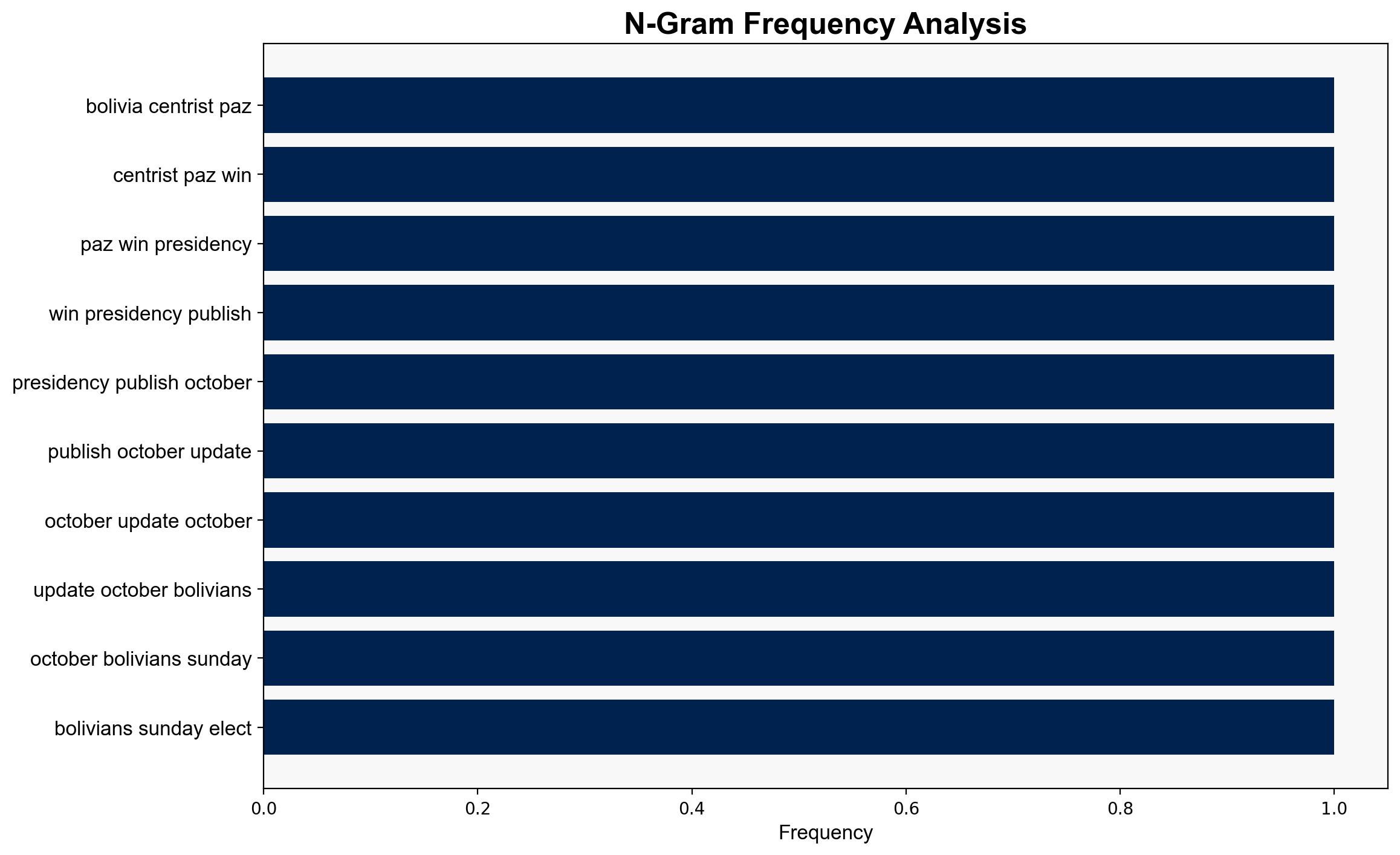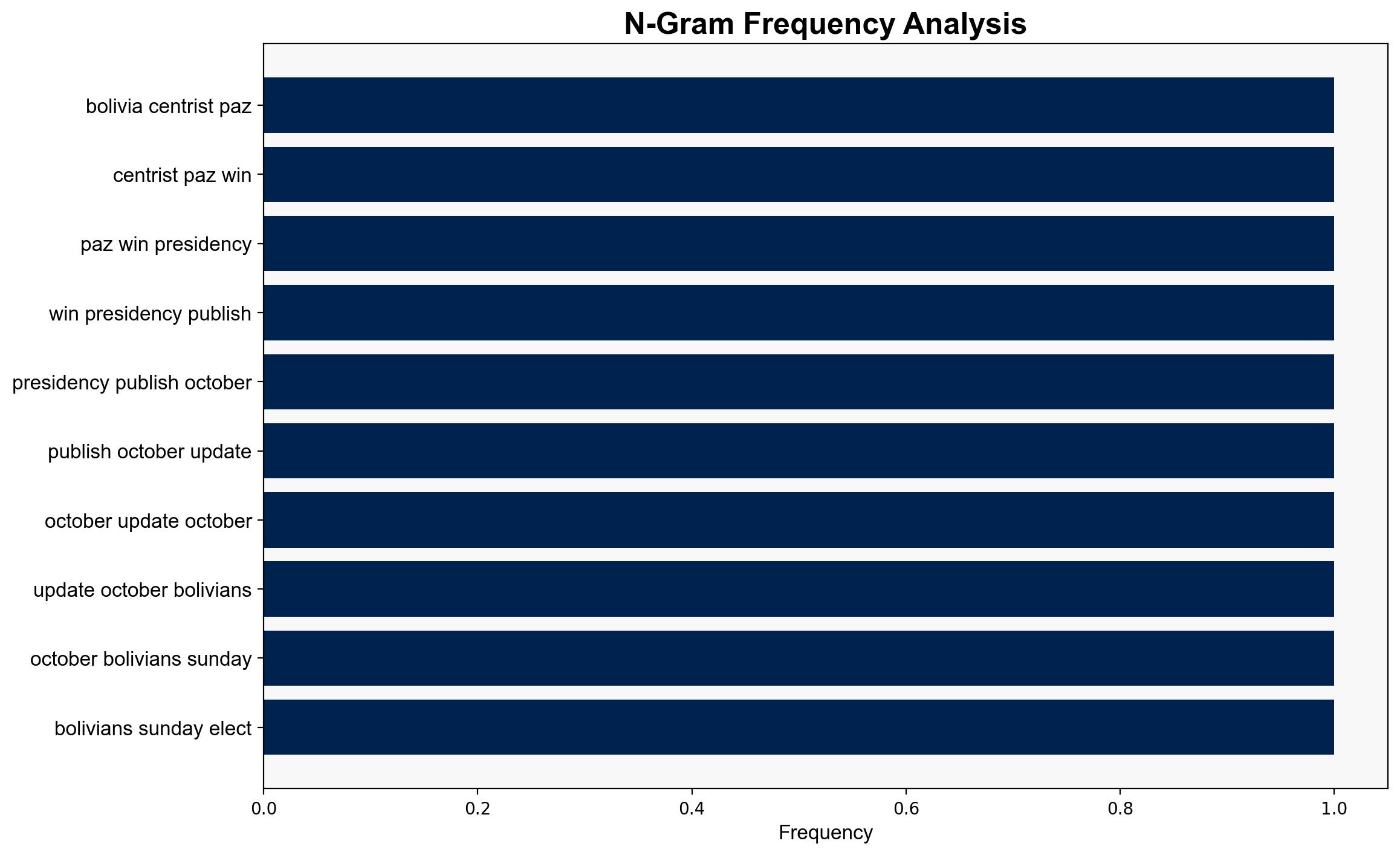Bolivia Centrist Paz wins presidency – DW (English)
Published on: 2025-10-20
Intelligence Report: Bolivia Centrist Paz wins presidency – DW (English)
1. BLUF (Bottom Line Up Front)
The election of Rodrigo Paz as Bolivia’s president signals a potential shift in economic and foreign policy. The most supported hypothesis is that Paz will implement moderate economic reforms while maintaining social welfare programs, aiming to stabilize the economy and improve international relations. Confidence Level: Moderate. Recommended action: Monitor Paz’s policy implementations and their impact on regional stability and economic recovery.
2. Competing Hypotheses
1. **Hypothesis A**: Rodrigo Paz will successfully implement moderate economic reforms, balancing fiscal responsibility with social welfare, leading to economic stabilization and improved international relations.
– **Supporting Evidence**: Paz’s campaign promises to restructure state businesses, attract foreign investment, and maintain social welfare programs. His avoidance of IMF assistance suggests a cautious approach to economic reform.
2. **Hypothesis B**: Paz’s reforms will face significant opposition, leading to political instability and limited economic progress.
– **Supporting Evidence**: The potential unrest from trade unions over fuel subsidy cuts and the historical challenges of implementing economic reforms in Bolivia. Paz’s relative political inexperience may hinder his ability to navigate complex political landscapes.
3. Key Assumptions and Red Flags
– **Assumptions**: It is assumed that Paz has the political capital and public support to enact his proposed reforms. Another assumption is that international relations, particularly with the United States, will improve under his leadership.
– **Red Flags**: Potential unrest from trade unions and the public if subsidies are cut. Paz’s lack of experience in high-level politics could be a vulnerability.
– **Blind Spots**: The extent of internal party support for Paz’s policies and the influence of external actors, such as the United States, on Bolivia’s economic decisions.
4. Implications and Strategic Risks
– **Economic Risks**: Failure to stabilize the economy could lead to increased inflation and further devaluation of the Boliviano.
– **Political Risks**: Potential for civil unrest if reforms are perceived as too drastic or if they fail to deliver immediate benefits.
– **Geopolitical Risks**: Changes in foreign policy could alter regional alliances, impacting Bolivia’s geopolitical standing.
5. Recommendations and Outlook
- Monitor the implementation of economic reforms and public response to gauge stability.
- Engage with regional partners to support Bolivia’s economic recovery and political stability.
- Scenario Projections:
- Best Case: Successful economic reforms lead to stabilization and improved international relations.
- Worst Case: Political instability and economic decline due to failed reforms and public unrest.
- Most Likely: Gradual economic improvement with intermittent political challenges.
6. Key Individuals and Entities
– Rodrigo Paz
– Jorge “Tuto” Quiroga
– Evo Morales
– Edmand Lara
– Donald Trump
– Javier Milei
– Marco Rubio
7. Thematic Tags
national security threats, economic reform, regional stability, foreign policy, political dynamics
